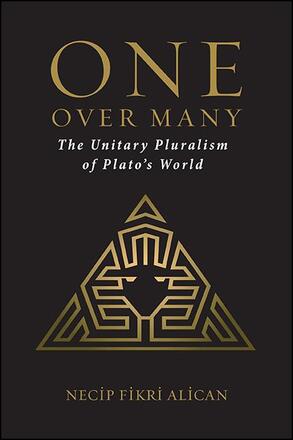
One over Many
The Unitary Pluralism of Plato's World
Alternative formats available from:
Corrective intervention in Plato's metaphysics replacing the standard view of Plato as a metaphysical dualist with a novel and revolutionary paradigm of unitary pluralism in a single reality built on ontological diversity.
Description
Finalist for the 2022 PROSE Award in the Philosophy category presented by the Association of American Publishers
One over Many is a groundbreaking interpretation of Plato's philosophical outlook, solving longstanding problems in the scholarly literature. Its originality and its strength consist in replacing the metaphysical dualism of the traditional interpretation with the paradigm of unitary pluralism: one world with a gradation of reality, including three different types of Forms, as well as the entire spectrum of sensible phenomena, with intermediate ontological constructs in between. The model thus combines a monism of worlds with a pluralism of things, positing a unitary reality of infinite possibilities through ontological stratification. This tightly integrated collection of essays, conceived and developed by the author in pursuit of corrective intervention in Plato’s metaphysics, combines his previously published work with newly drafted material for the present volume. The book replaces the standard view of Plato as a metaphysical dualist with a novel interpretation providing greater explanatory power through the paradigm of unitary pluralism in a single reality built on ontological diversity.
Necip Fikri Alican is a philosopher specializing in ethics and metaphysics, both especially from a historical perspective.
Reviews
"…Alican puts forward an original and compelling conception of the Forms." — Review of Politics
"There is not, nor will there ever be, general agreement about the nature and role of Platonic forms. Yet Alican gives his readers a thread to follow through the labyrinth of past and present interpretations and, even if we ultimately reach conclusions at odds with his, the wonder and the achievement is that he has made the quest itself so philosophically satisfying." — Debra Nails, Michigan State University
"What is a Form? How are Forms related to each other? How are they related to their participants. Are there things intermediate between the two? Are there negative Forms, empty Forms, or Formless things? Are Forms numbers? Inquiring readers of Plato want to know. And in this clearly written and vigorously argued book they will find challenging answers to provoke, enlighten, and inspire to further thought." — C. D. C. Reeve, University of North Carolina at Chapel Hill
"Alican's book is an outstanding contribution on the subject of Plato's forms: one of the most contested aspects of Platonic philosophy, but one on which—given the importance his leading character, Socrates, attributes to it—Plato himself has surprisingly little to say. The book, which adds two new chapters to revised versions of five already published (sometimes in relatively inaccessible places), provides powerful further ammunition for use against 'two-world' interpretations of form theory that paradoxically rely more on Aristotle's hostile representations of it than on Plato's own treatments, and thereby rob it both of its potential as a basis for radical ethical theorizing and of much of its philosophical interest in general." — Christopher J. Rowe, Durham University
"Alican encourages us to question the view of Plato's metaphysics as predicated on 'two worlds' and gives us reasons to prefer the 'two levels' view instead. It is a thoroughgoing and comprehensive approach to the topic, sensitive to the incredibly complex issues of Platonic interpretation, one that breaks new ground, providing better questions and a new angle of vision, opening up vistas for further research. Alican further articulates the relevant issues and makes thinking more precise, in a way that will raise the level of discussion and generate fruitful debate. It is likely to make even those well-versed in these issues think: 'Apparently, I had never thought clearly or deeply enough about this before!'" — William A. Welton, Kent State University